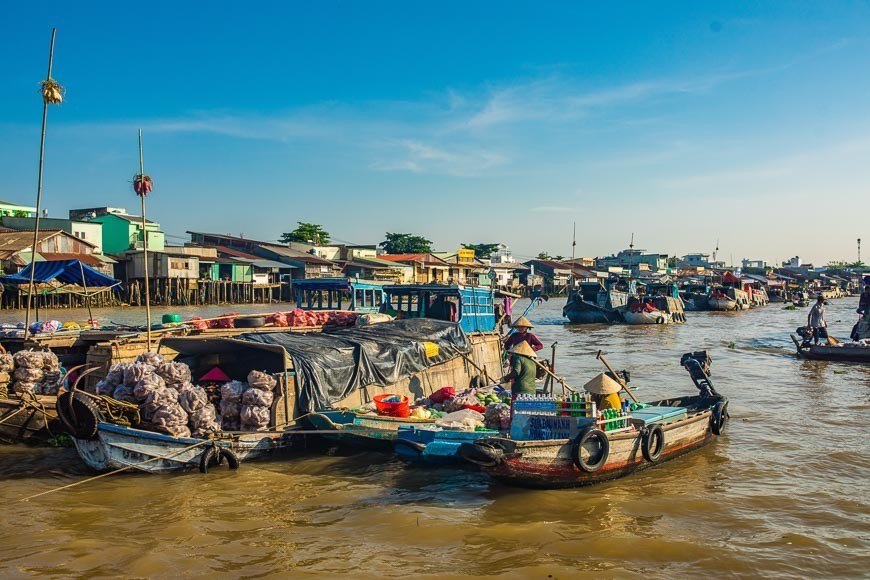Vietnam First Time Nominated as Co-chair of OECD in Southeast Asia
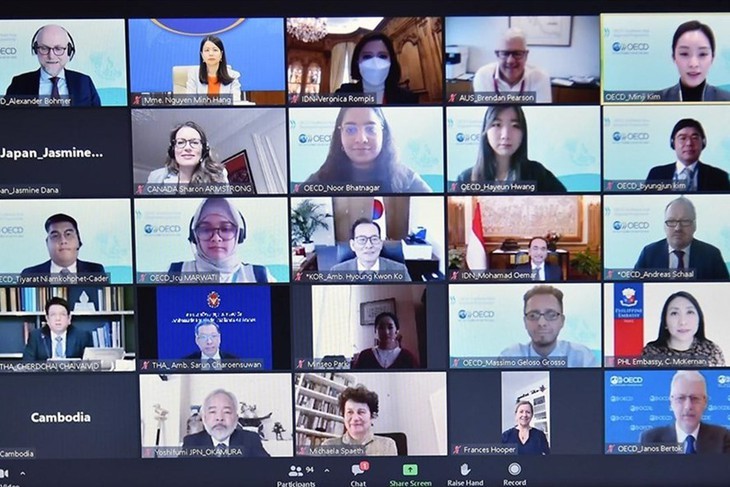 | |
|
According to VNA, the nomination was decided at the 8th meeting of the Steering Group of the OECD Southeast Asia Regional Programme held in the form of videoconference on December 9. Assistant to the Foreign Minister and Director of the Department of Economic Affairs at the Ministry of Foreign Affairs Nguyen Minh Hang attended the meeting.
In her remarks, Hang thanked OECD and the Southeast Asia Regional Programme for their acknowledgment of Vietnam’s active and responsible contributions over the past time, pledging that Vietnam will closely coordinate with Australia to carry forward the achievements and propose priority areas.
Anthony Stannard, a representative from the Australian delegation, also affirmed Australia’s resolve to join hands with Vietnam and regional countries in the next three years when it holds co-chairmanship.
Vietnam is the third nation in Southeast Asia to work as co-chair of the program, after Indonesia and Thailand, which demonstrates efforts in implementing the directive of the Party Central Committee's Secretariat on enhancing and advancing multilateral diplomacy by 2030.
The position would help Vietnam prove its international role and responsibility while utilizing OECD’s consultancy and support for the country’s development goals.
The nomination also reflects OECD’s trust in Vietnam’s capacity to connect the organization with the Southeast Asian region in the areas of shared concern.
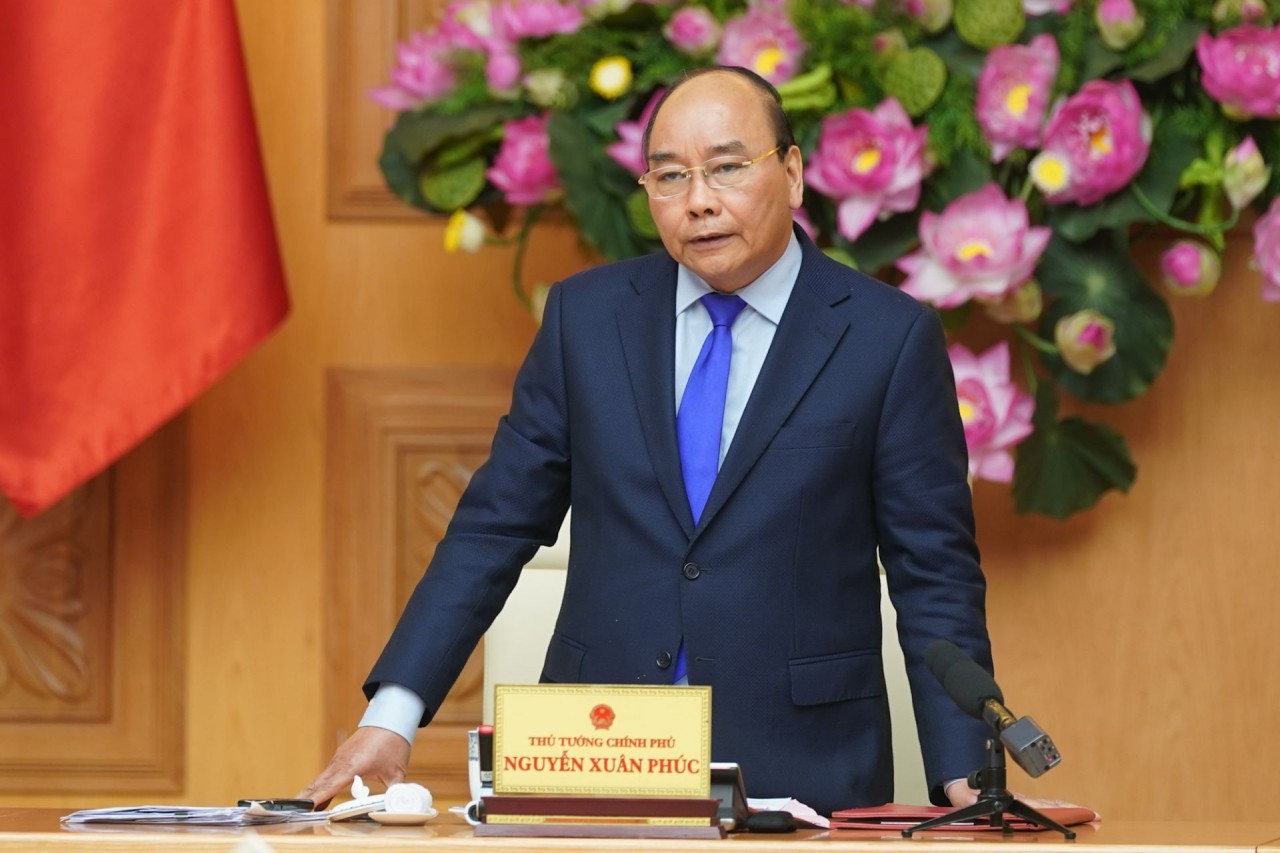 |
| Former Prime Minister Nguyen Xuan Phuc. Photo: VNA |
Last December, former Prime Minister Nguyen Xuan Phuc sent a congratulatory message to the Organization of Economic Cooperation and Development (OECD) on the occasion of its 60th anniversary (December 14, 1960-December 14, 2020).
The Government chief spoke highly of the OECD’s achievements over the past six decades.
Phuc called on the OECD to continue promoting new growth driving forces and models, upholding rules-based multilateralism, formulating new rules and standards in global economic governance among others in favor of achieving sustainable and inclusive development goals for all.
He also expressed his pleasure at the positive and substantial growth of the Viet Nam-OECD cooperation over the past time and called for more support and assistance from the OECD for Viet Nam to realize the goal of becoming a high middle-income country by 2030 and a high-income country by 2045.
About OECD's Southeast Asia
Southeast Asia is one of the most dynamic and diverse regions in the world, with a growing influence on the world economy and an ambitious regional integration roadmap. Inaugurated by OECD Secretary-General Angel Gurría and Japanese Prime Minister Shinzō Abe at the OECD Ministerial Council Meeting in May 2014, the OECD Southeast Asia Regional Programme (SEARP) aims to support the region in its domestic priorities, policy reforms, and regional integration efforts. The SEARP held its first Ministerial Conference in March 2018, to discuss issues on Inclusive ASEAN, and the next phase of the Programme.
The Programme’s structure is designed to encourage a systematic exchange of experience to develop common solutions to regional and global policy challenges. It is comprised of thematic six Regional Policy Networks (RPNs), the Economic Outlook for Southeast Asia, China and India, and four Initiatives which will build on the work program of substantive OECD and Southeast Asian bodies and dialogue processes, according to OECD.
OECD's Southeast Asia Programme's objectives and partners
Building on two decades of engagement with Southeast Asia, the OECD Southeast Asia Regional Programme aims to bring the relationship to a new and more strategic level, providing a whole-of-government approach to countries in the region. The Programme fosters the exchange of good practices and mutual learning among policymakers in OECD and Southeast Asian countries.
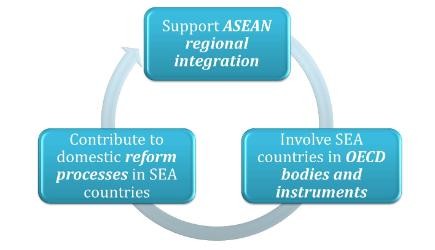 |
| Infographics: OECD |
The ASEAN Economic Community (AEC) Blueprint 2025, launched during the 27th ASEAN Summit in November 2015, specifically mentions the OECD as one of the institutions for strategic collaboration. It envisages a highly integrated, cohesive, competitive, innovative and dynamic Southeast Asia, with enhanced connectivity and integrated into the global economy.
In addition, the Programme works with Southeast Asia in strong partnerships and complementarity with several regional organizations. These regional partners include the Association of Southeast Asian Nations (ASEAN), the Asia-Pacific Economic Cooperation (APEC), the Asian Development Bank (ADB), the Economic Research Institute for ASEAN and East Asia (ERIA) and the United Nations Economic & Social Commission for Asia & the Pacific (ESCAP).
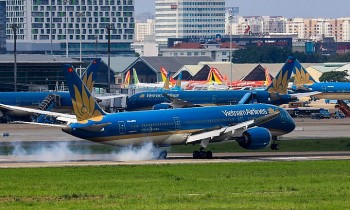 | Vietnam News Today (December 11): Vietnam to Resume International Air Routes on December 15 Vietnam News Today (December 11): Vietnam records 14,819 new Covid cases; Vietnam to resume international air routes on December 15; Vietnam nominated as co-chair of ... |
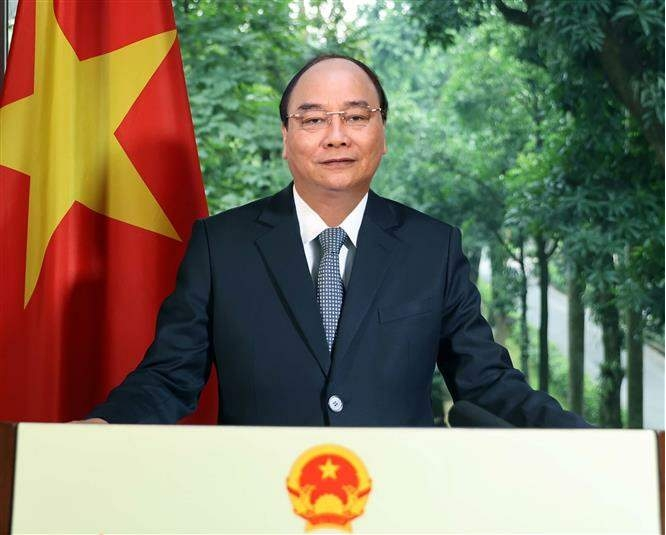 | PM Nguyen Xuan Phuc congratulates OECD on 60th anniversary Prime Minister Nguyen Xuan Phuc sent a congratulatory message to the Organization of Economic Cooperation and Development (OECD) on the occasion of its 60th anniversary ... |
 | Global growth plunging into downturn over coronavirus, OECD says The coronavirus outbreak is plunging the world economy into its worst downturn since the global financial crisis, the OECD warned, urging governments and central banks ... |
Recommended
 National
National
Vietnam News Today (Jun. 4): Vietnam - Promising Candidate for Southeast Asia’s Next Powerhouse
 National
National
Shangri-La Dialogue 22: Vietnam Highlights Some Issues of Ensuring Stability in a Competitive World
 National
National
Vietnam News Today (Jun. 3): PM Pham Minh Chinh to Attend UN Ocean Conference, Visit Estonia, Sweden
 National
National
Vietnam News Today (Jun. 2): Vietnamese Trade Mission Sounds Out Business Opportunities in United States
 National
National
Vietnam News Today (Jun. 1): Vietnamese, Japanese Firms Foster Partnership
 National
National
Vietnam News Today (May 31): Vietnam Strongly Supports Laos’s National Development
 National
National
Vietnam News Today (May 30): Vietnam, Venezuela Reinforce Ties Through People-to-people Diplomacy
 National
National

